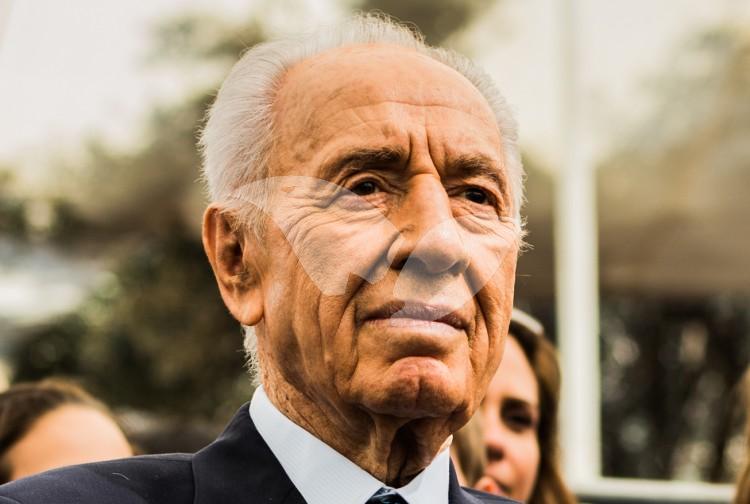
Former president, prime minister, statesman and Nobel Peace Laureate Shimon Peres has died at the age of 93. He passed away during the early morning hours of September 28 at Sheba Medical Center in Ramat Gan after suffering a severe stroke two weeks ago, on September 13. Peres’ condition had been improving, until it suddenly sharply deteriorated on Tuesday and he was pronounced dead at 3:40 a.m. Israel time.
The hospital is due to make an official announcement at 7:00 a.m. local time.
Born in Poland in 1923 as Szymon Perski, Peres moved to Israel with his family in 1934 and rose to become one of the most prominent and influential figures in Israel’s history. He was one of the founders of Kibbutz Alumot in the north of the country, where he worked as a shepherd and a farmer, and in 1945 he married Sonya Gelman. They had three children together- Tsvia, Yoni and Chemi. Sonya Peres died in 2011 at the age of 87.
During a political career that spanned 73 years, Peres served as prime minister, president, and Knesset member for 47 consecutive years, the longest anyone has served in the Israeli parliament. He also published at least 11 books as well as hundreds of articles in newspapers and periodicals in Israel and around the world.
Peres’s political career began in 1941 when he was elected Secretary of Hanoar Haoved Vehalomed, the Labour party youth movement. David Ben Gurion then appointed him to the secretariat of Mapai, the party that later became Labour, and in 1946 Peres was chosen alongside Moshe Dayan as a youth delegate in the party’s delegation to the Zionist Congress in Basel.
In 1947 Shimon Peres joined the Haganah, the armed forces that later became the Israel Defense Forces (IDF). He became director-general of the Ministry of Defense in 1953, when he was only 29 years old. During the 1950s he played an important role in developing Israel’s defense industry, forming strong personal and political relations with French officials that resulted in many years of military aid, strong cooperation between the countries, and the establishment of Israel’s nuclear research center in Dimona.
Peres served two terms as prime minister, from 1984 and 1986 and 1995-6 following the murder of Prime Minister Yitzhak Rabin. He was a member of 12 cabinets, holding positions including defense minister, foreign affairs minister and finance minister.
Peres was awarded the 1994 Nobel Peace Prize (together with Yitzhak Rabin and Yasser Arafat) for his role in the 1993 Declaration of Principles signed between Israel and the Palestine Liberation Organization. Two years later he established the Peres Peace Center which aims to promote peace through cooperation and face-to-face interaction between Jews and Arabs.
After leaving the Labor Party in 2005 to join the more centrist Kadima faction, headed by Ariel Sharon, Peres was elected president by the Knesset in 2007, succeeding Moshe Katsav.
Peres ended his political career when his presidency term ended in 2014, but continued his involvement in public activities, primarily through the Peres Peace Center.